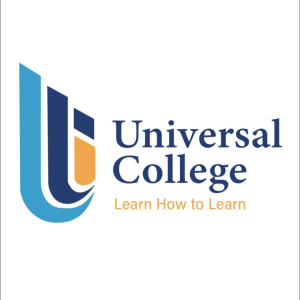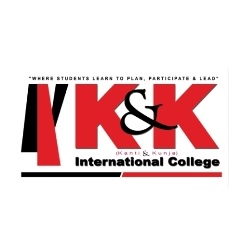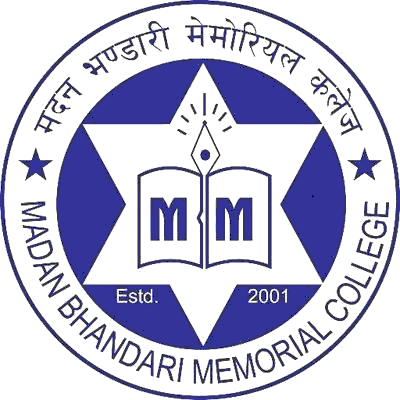Overview
Overviews of MA in Sociology Program at Pashupati Multiple Campus, Mitrapark, Chabahil, Kathmandu (affiliated with TU)
The Master of Arts (MA) in Sociology program at Pashupati Multiple Campus (PMC), Mitrapark, Chabahil, Kathmandu, is affiliated with Tribhuvan University (TU). The program comprehensively explains human behavior, social structures, institutions, and cultural complexities. It prepares students to address contemporary societal challenges through advanced research and analytical skills.
Course Overview
The MA in Sociology is an interdisciplinary program developed to empower students with theoretical knowledge and practical expertise in sociology. The program covers various topics, including social structures, human evolution, social conflict, and cultural dynamics. Students gain hands-on experience in fieldwork and data analysis, preparing them for academic and professional excellence.
Program Duration
The MA in Sociology is a two-year program divided into four semesters. Each semester includes coursework, research activities, and practical learning experiences. A compulsory thesis or research project is required in the final semester.
Eligibility Criteria
General Eligibility:
-
Applicants must hold a Bachelor's degree in any of the following subjects from TU or a recognized university:
-
Sociology
-
Anthropology
-
Social Work
-
Psychology
-
Economics
-
Political Science
-
History
-
Home Science
-
Geography
-
Nepalese History, Culture, and Archaeology
-
Degrees from faculties of education, management, law, medicine, engineering, forestry, agriculture, or animal science are also acceptable.
Specific Requirements:
-
Aspiring candidates must pass the entrance examination conducted by the Faculty of Humanities and Social Sciences (TUFOHSS).
-
Admission is based on merit and the enrollment capacity of the department.
Admission Process
-
Entrance Examination:
-
Duration: 1 hour
-
Format: Multiple-choice and short-answer questions
-
Minimum qualifying score required
-
Application Submission:
-
Completed application form
-
Attested academic documents and certificates
-
Two passport-size photographs
-
Selection:
-
Merit-based ranking and interview (if applicable)
Course Outline
The MA in Sociology program comprises 18 courses, including 14 core courses and four electives, along with a compulsory thesis in the fourth semester.
First Semester Courses:
-
Introduction to Sociology (So561) – 3 Credit Hours
-
Qualitative Research Methods in Sociology (So562) – 3 Credit Hours
-
Structural-functional Approach (So563) – 3 Credit Hours
-
Caste and Class (So564) – 3 Credit Hours
-
Theories of Social Change and Development (So565) – 3 Credit Hours
Second Semester Courses:
-
Marxist Perspective (So571) – 3 Credit Hours
-
Quantitative Research Methods in Sociology (So572) – 3 Credit Hours
-
Practice of Social Change and Development in Asia (So573) – 3 Credit Hours
-
Politics and Society: Interface between Nation, State, and Globe (So574) – 3 Credit Hours
-
Sociology of Health (So575) – 3 Credit Hours
-
Household and Family in Transition (So576) – 3 Credit Hours
Third Semester Courses:
-
World-System Perspective (So581) – 3 Credit Hours
-
Basic Statistics in Sociological Research (So582) – 3 Credit Hours
-
Sociology of Gender (So583) – 3 Credit Hours
-
Identity, Inequality, and Intersectionality (So584) – 3 Credit Hours
-
Migration, Social Network, Remittance, and Development (So585) – 3 Credit Hours
-
Sociology of Ageing and Disability (So586) – 3 Credit Hours
-
Power, Leadership, Governmentality, and Development (So587) – 3 Credit Hours
-
Urban Sociology (So588) – 3 Credit Hours
-
Sociology of Disaster (So589) – 3 Credit Hours
Fourth Semester Courses:
-
Agency/Micro versus Structure/Macro Perspectives (So591) – 3 Credit Hours
-
Survey Research and Computer Data Analysis (Practical) (So592) – 3 Credit Hours
-
Thesis (So593) – 6 Credit Hours
-
Elective Courses (Choose One):
-
Gender, Power, and Sexuality (So594)
-
Changing Livelihoods (So595)
-
Market and Society (So596)
-
Sociology of Education (So597)
-
Sociology of Tourism (So598)
-
Research Design and Writing (So599)
Program Objectives
-
Provide advanced knowledge of sociological theories and methodologies.
-
Develop professional research skills for analyzing social phenomena.
-
Foster critical thinking and problem-solving abilities.
-
Equip students to address societal issues focusing on human rights and social justice.
-
Prepare skilled professionals to meet Nepal's development needs.
Teaching Methodology
The program employs interactive lectures, fieldwork, case studies, and seminars to ensure comprehensive learning. Practical assignments, group discussions, and research projects are integrated into the curriculum to foster analytical thinking and real-world application. Modern technology enhances the learning experience.
Learning Outcomes
Graduates will:
-
Demonstrate mastery of sociological theories and research methods.
-
Conduct independent and collaborative research projects.
-
Analyze social structures, behaviors, and institutions critically.
-
Apply sociological knowledge to address real-world problems.
-
Promote ethical practices and social justice in professional settings.
-
Communicate effectively in academic and professional environments.
Future Scope
-
Learn advanced studies, such as a PhD in Sociology or related fields.
-
Engage in academic and policy research at national and international levels.
-
Contribute to community development and social justice initiatives.
-
Explore interdisciplinary opportunities in public health, education, and governance.
Career Prospects
-
Academic Researcher or Educator
-
Policy Analyst
-
Social Worker
-
Consultant in NGOs and INGOs
-
Urban Planner
-
Public Health Specialist
-
Human Rights Advocate
Scholarship Opportunities
PMC provides scholarships based on academic merit, financial need, and TU guidelines. Specific scholarships may be available for students from remote or marginalized communities.
Fee Structure
Fees are determined by TU and PMC's Fee Determination Committee. Contact the campus administration for detailed information.
Extracurricular and Co-Curricular Activities
Students are encouraged to participate in workshops, seminars, community outreach programs, and cultural events. These activities enhance their interpersonal skills, leadership qualities, and cultural awareness.
Real-World Application
The program integrates practical experiences through internships, field studies, and project work. Students engage with communities to address social issues and implement sustainable solutions.
Sustainability and Social Impact
The MA in Sociology program emphasizes sustainable development and social responsibility. Graduates are prepared to address societal challenges through ethical and inclusive practices.
Skill Development
The program focuses on developing:
-
Research and data analysis skills.
-
Critical thinking and problem-solving abilities.
-
Effective communication and writing skills.
-
Leadership and teamwork capabilities.
-
Cultural competence and ethical decision-making.
Global Perspective
The curriculum incorporates global sociological issues, preparing students for international research and cross-cultural collaborations. Exposure to diverse perspectives fosters adaptability and global awareness.
Facilities and Support
PMC offers:
-
Well-equipped classrooms and research facilities.
-
Access to a library and online resources.
-
Academic advising and career counseling.
-
Support for internships and research projects.
Why Choose the MA in Sociology Program?
The PMC MA in Sociology combines rigorous academic training with practical experiences, equipping students to address complex social issues. The program's focus on research, ethics, and interdisciplinary learning prepares graduates for impactful careers in academia, policy, and community development.
Is the MA in Sociology Program Right for You?
If you are passionate about understanding societal dynamics and committed to driving social change, the MA in Sociology program offers the tools and opportunities to achieve your goals. It is ideal for research, advocacy, and public service students.
What is the Future of the MA in Sociology Program?
With increasing demand for social scientists in academia, public policy, and community development, the MA in Sociology program ensures graduates are well-equipped to contribute meaningfully to local and global challenges.
How to Improve Your Study of Sociology
To excel in sociology, students should actively engage in fieldwork, participate in group discussions, and collaborate on research projects. They should also utilize available resources such as journals and databases, attend workshops, and seek mentorship from faculty. Practical exposure through internships and community work enhances learning outcomes.
Conclusion
The MA in Sociology program at Pashupati Multiple Campus offers a robust, interdisciplinary education combining theoretical rigor and practical applications. Graduates are prepared to address complex social challenges and contribute to academia, policy-making, and community development. The program's emphasis on ethics, research, and innovation equips students for meaningful and impactful careers.
Contact Pashupati Multiple Campus's administrative office for detailed information on the MA in Sociology course, including fees, scholarships, facilities, counseling, eligibility criteria, etc.



















